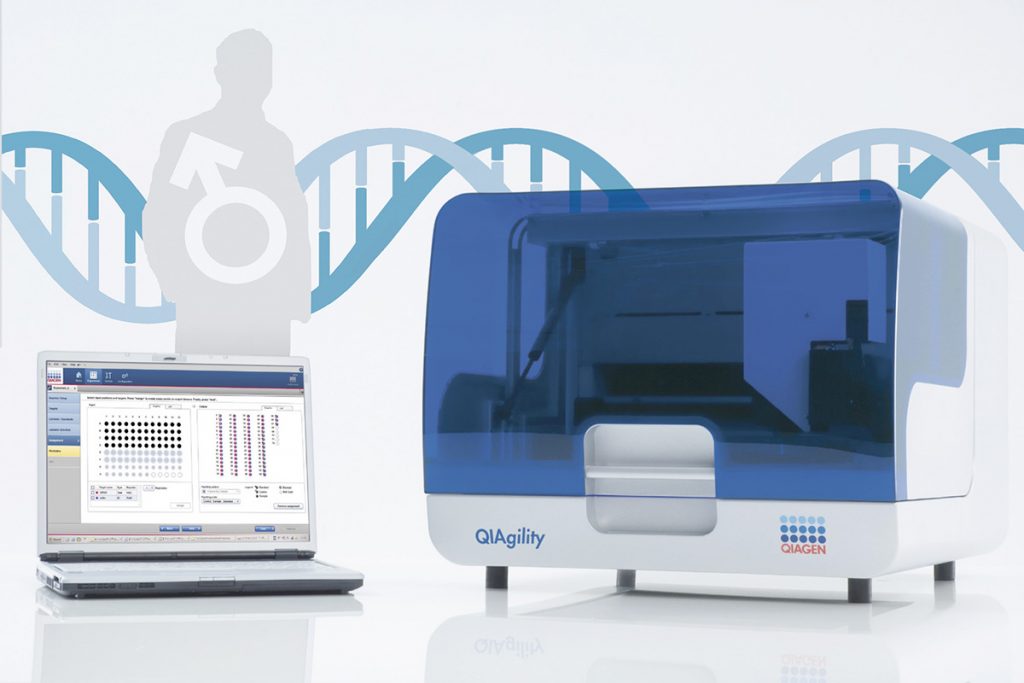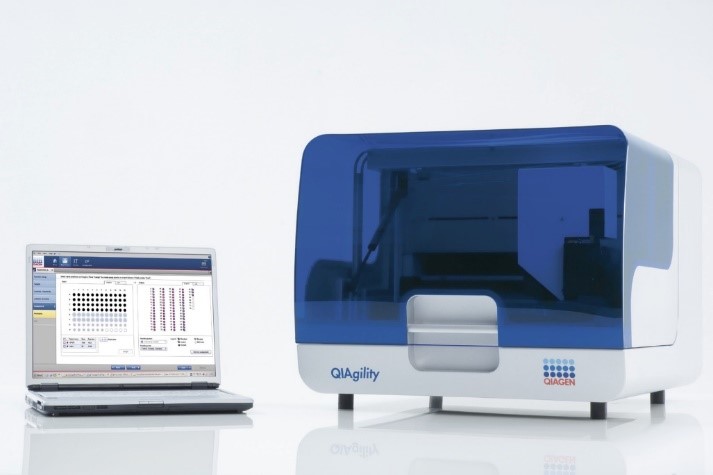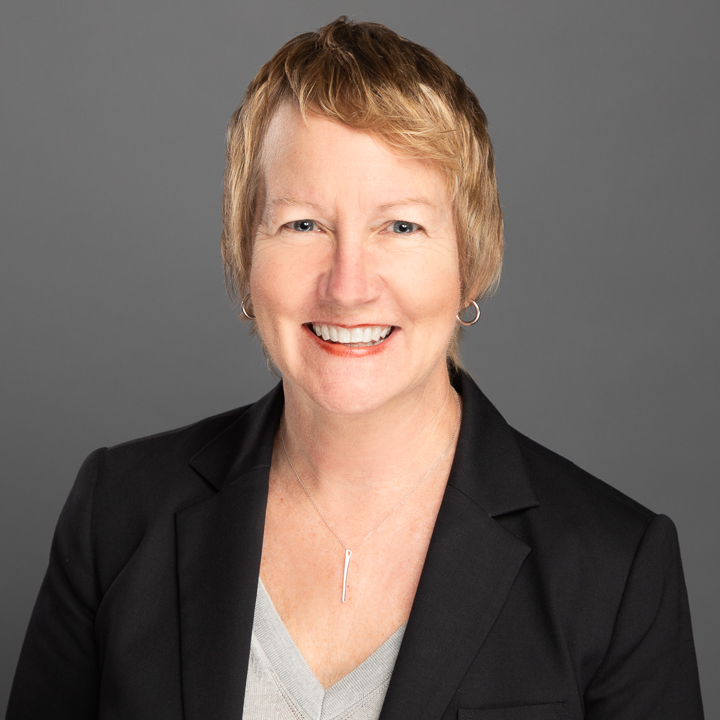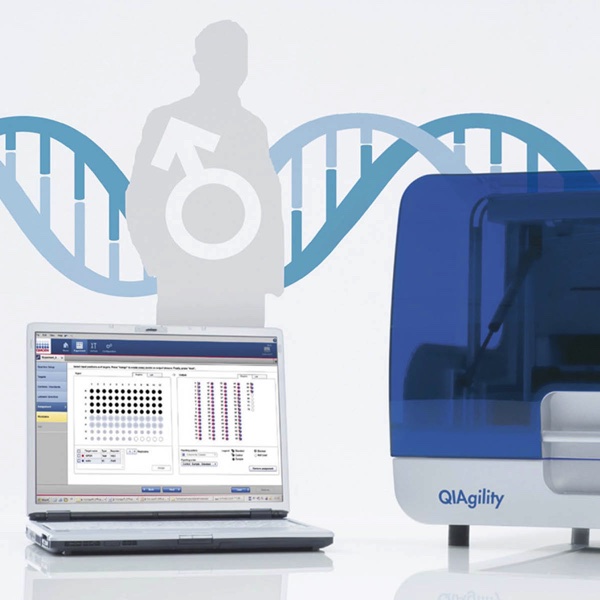
Signature Science, a private Forensic DNA Laboratory based in Austin, Texas, validated a suite of robotics and associated methods for sexual assault kit processing in 2018 with the goal of increasing throughput while also delivering a more quantitatively robust product to our clients. Our internal assessment led to the selection and implementation of a direct to DNA male screening approach that, now in practice for over a year, is enabling more informed sample processing than serological-based semen screening methods.

A Direct to DNA Male Screening approach detects the quantity of male DNA in sexual assault kit swabs using a more sensitive and automated method than traditional serological screening. All swabs in a sexual assault kit are taken through the first two steps of DNA analysis (extraction and quantitation) and assessed for the quantity of male DNA. This is done in place of screening each swab in the kit using traditional serological techniques such as the Acid Phosphatase assay, P30 assay, and microscopic identification of sperm.

Method Assessment and Down Select. Signature Science conducted an internal down-selection study to identify a male screening method more robust and sensitive than traditional serology screening while decreasing hands-on time for analysts in the laboratory. Scientific literature reports several laboratory methods for male screening, utilizing a range of chemistries, DNA extraction approaches, time requirements, and swab cutting sizes. A method using a Qiagen extraction chemistry consistent with traditional DNA extraction was selected. While the traditional extraction is more time consuming, it proved more robust and sensitive results than a less time-consuming approach involving the analysis of a crude lysate.
Signature Science added robotics to help automate the direct to DNA male screening process. Qiagen EZ1 extraction robots were selected to supplement the fleet of previously implemented Qiacubes. Additionally, new methods were validated on the Qiacubes to automate sperm pellet washes, a labor intensive and time-consuming component of processing sexual assault kit swabs. A liquid handling robot was also validated to automate quantification and amplification plate setup.
Since implementing the male screening workflow, Signature Science has seen:
Improved Efficiency. While the implementation of male screening drastically reduces the amount of time needed to screen a sexual assault kit versus using traditional serological techniques, it also increases the number of samples taken through DNA extraction and quantitation. The implementation of robots more than mitigates that concern.
Quality Assurance. Male screening reduces analyst-to-analyst variability and subjectivity in detecting the presence of semen and minimizes the potential adverse effects (i.e., false-negative results) associated with uneven distribution of semen (if present) inherent in sexual assault kit swabs due to normal sampling error. Male screening has the added benefit of detecting male DNA attributable to sources other than semen, such as touch or saliva. Further, the decisions to send samples forward to DNA analysis are made based on quantitative values as opposed to qualitative serological assay data.
Increased Capacity. Processing time for a sexual assault kit was cut by roughly half, essentially doubling our casework capacity for sexual assault kit swabs.
Value to our Clients. Costs are reduced, as only those samples that are most likely to yield probative information are sent forward for DNA analysis.
There were numerous lessons learned throughout this process. If you are a crime laboratory director looking to maximize your casework productivity, we would be happy to share our experiences with you.

Leslie Parke, PMP, CQA
Director, Forensic DNA Laboratory
For more information
Leslie Parke, PMP, CQA, CSM, is the Laboratory Director for Signature Science’s ANAB-accredited forensic DNA testing laboratory in Austin, Texas. She is a credentialed Project Management Professional with over 20 years of experience managing biology-focused projects for U.S. government programs and over 25 years of experience as a Quality Assurance expert. Leslie is often recognized by clients for her excellence in responsiveness and customer service.
Leslie and Jamie Haas presented this topic at the ASCLD Symposium in May 2019 and welcome your inquiries.

